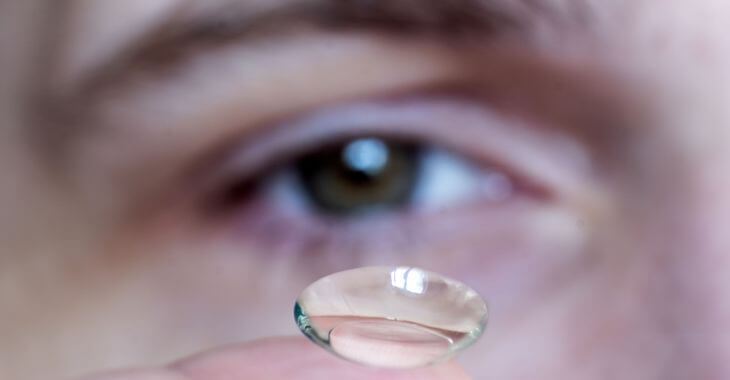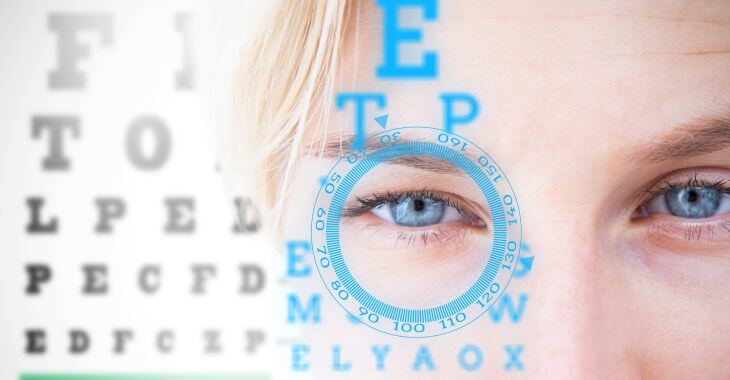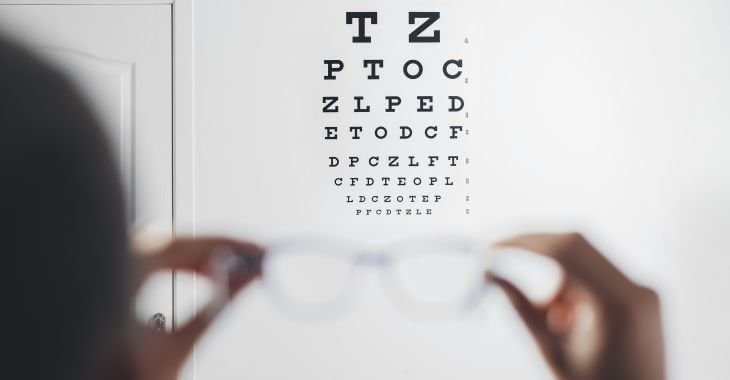Why Are My Contacts Blurry?

When you put in contact lenses, you expect to see clearly. If you put in a new contact, blurry vision should not be the result. Your contacts may not provide the sight you expected for a few reasons. If you are wondering, “Why are my contacts blurry?” here are some possibilities.
Contact lenses are based on your vision prescription and should be made to fit the shape of your eyes. They can be a wonderful alternative to glasses but can be affected by various factors. If your contacts are not providing clear vision, it may be due to the lenses or other factors.
Make Sure Your Lenses Are Clean
First and foremost, make sure your contact lenses are clean. Most contacts should be removed daily to be cleaned, usually soaking in solution while you sleep. If you have blurry vision, try removing and cleaning your contacts to see if this resolves the problem.
New Contact Lens Wearers
If you wonder, “Why are my new contacts blurry?” and these are your first contact lenses, you may need an adjustment period. Eyes may need to acclimate to wearing contacts for the first time. Give your eyes time to adjust – if your vision is still blurry after several days, call your eye doctor.
Do You Have Allergies?
If you have allergies and put in a contact, blurry vision may occur. The addition of contact lenses will aggravate eyes that are already watery and itchy. You may need to switch to wearing glasses when your allergies are at their worst or take medications to control your allergy symptoms.
Has Your Vision Changed?
If you have had the same contact prescription for a year or more and suddenly your vision is blurry, you may need a new prescription. Vision can change over time – you should see your eye doctor every two years to check your vision and adjust your prescription if needed.
Poor Fit
Why are my new contacts blurry? If you are not new to wearing contacts but your new contacts are blurry, they may be the wrong fit. Did you change brands or types of contacts? There are many shapes and sizes of contacts – you may need to change brands or types to obtain comfortable lenses.
Floaters Are Affecting Your Vision
Floaters are normal, but they can blur your vision if you are wearing contacts. Floaters usually go away on their own, and you should not need to remove your contacts. However, prolonged floaters can indicate retina problems, and you should call your eye doctor.
Other Eye Problems
It may not be your contacts making your vision blurry. Other eye issues could be affecting your eyesight. Dry eyes, infections, styes, and other eye conditions may affect your vision. Dry eyes can be treated with drops, but if you have other symptoms, you should remove your contacts:
- Redness
- Discharge
- Light sensitivity
- Eye pain
You may have conjunctivitis or other eye problems if you have any of these symptoms with blurry vision. Do not continue wearing contacts – call your doctor to get a diagnosis.
Medical Conditions
Many medical conditions can affect your vision. If you are wondering, “Why are my contacts blurry?” when they worked well before, it may be due to changes in your health. If you notice changes in your vision, it may be due to one of the following medical conditions:
- Diabetes – high blood sugar can damage the blood vessels in the eyes
- Cardiovascular disease – may cause blood vessel damage
- Macular degeneration – degenerative disease that affects vision
- Glaucoma – changes in eye pressure
- Cataracts – causes blurry eye lenses and changes in vision
- Pregnancy – hormone changes during pregnancy can create dry eye and temporary vision changes
- Menopause – hormone changes before and after menopause may affect the eyes
All of these may affect the clearness of your vision. If you have blurry vision when wearing your glasses as well as contacts, you likely have a health condition affecting your eyesight. You should see your primary care doctor to determine the cause of your vision change.
Migraine Headaches
One of the symptoms of migraine headaches is blurry vision. Sometimes vision changes are the first signs of an upcoming migraine episode. If your eyes are sensitive to light or you notice flashing or halos on one side, you may be experiencing migraine headache symptoms.
Do You Have Astigmatism?
Contacts may move around if you have an astigmatism in one or both eyes. This can cause discomfort and blurry vision. While it is possible to wear regular contacts with astigmatism, they may be uncomfortable. Consider changing to contacts made for eyes with astigmatism.

If you have sudden changes to your vision while wearing contacts, it may or may not be due to the contacts themselves. Consider the previous possibilities and call your doctor for an eye exam or new contacts.
The information provided on this website, including text, graphics, images, and other materials, is intended solely for informational purposes and should not be used as a substitute for professional medical advice, diagnosis, or treatment.




)